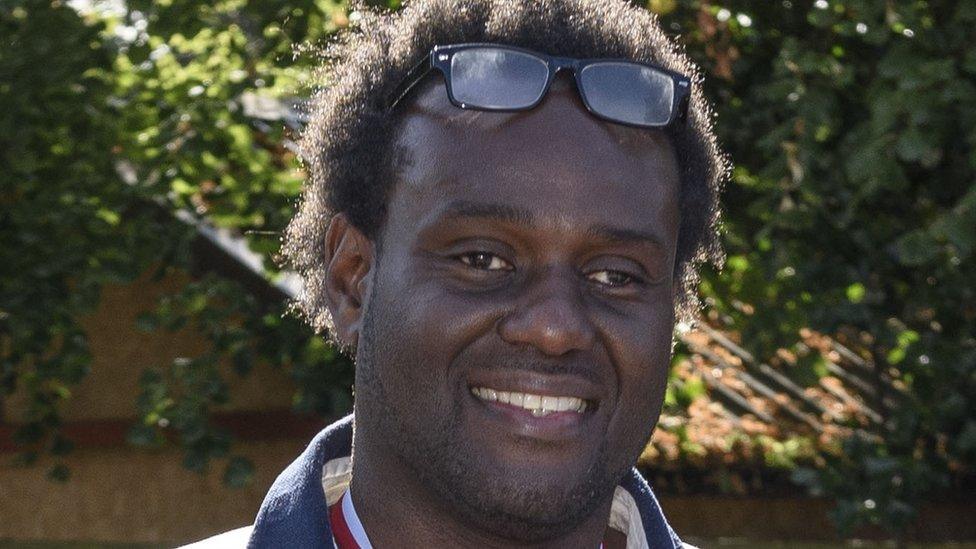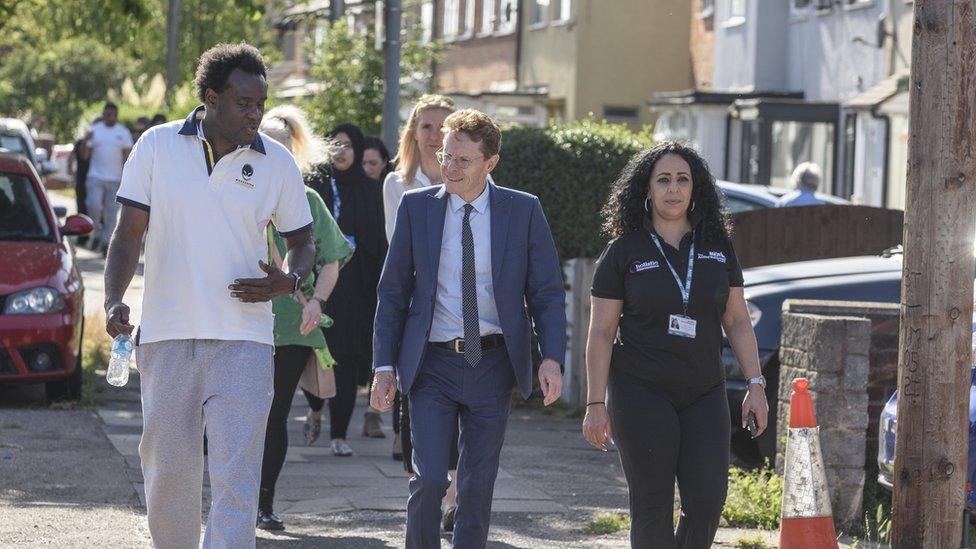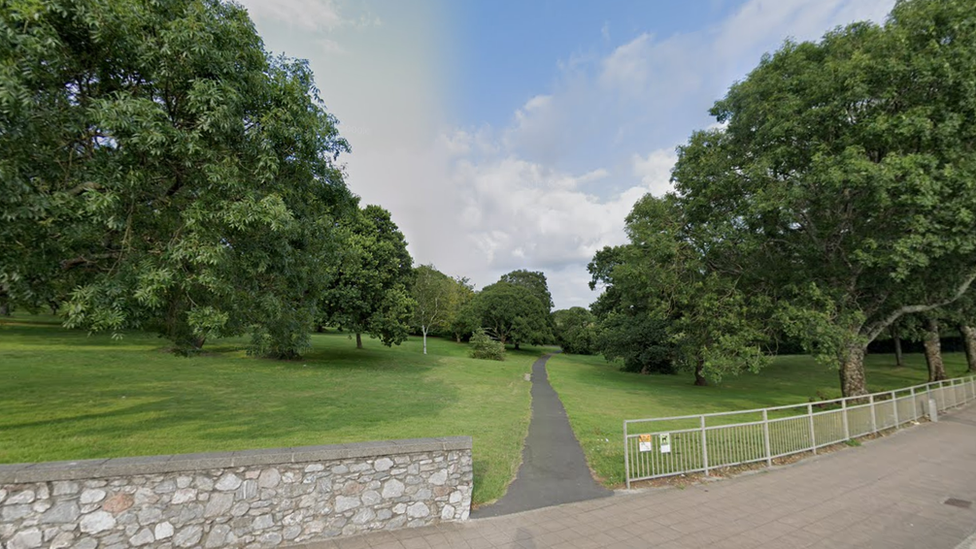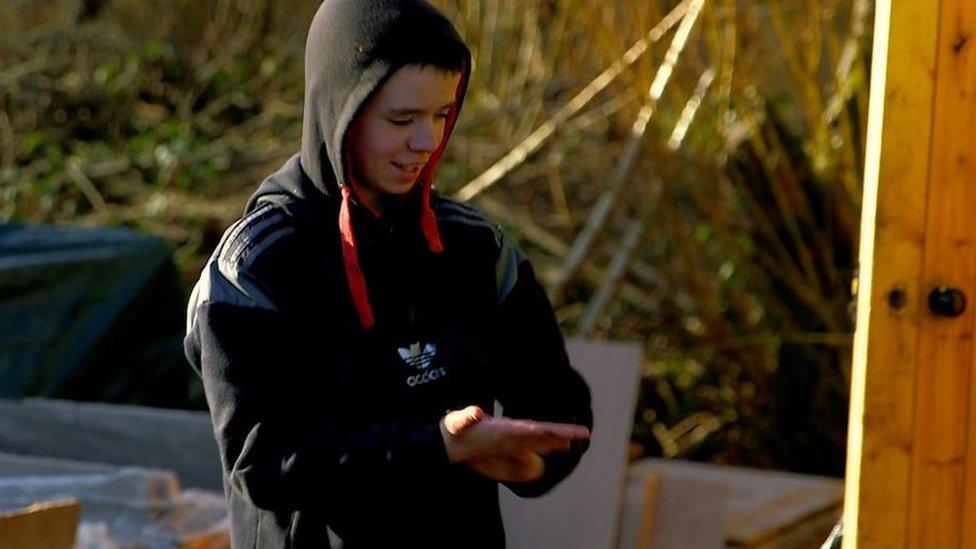Birmingham man's praise for social prescribing
- Published

Art Gilchrist said he was left struggling following an injury in 2019
A man whose GP referred him to a walking group says social prescribing has helped build his confidence.
Art Gilchrist from Birmingham said he suffered with pain, anxiety and stress after he was injured at work in July 2019.
During the pandemic, the 53-year-old said he struggled to get help, facing long waits for assessments.
He said his life was changed after his GP put him in contact with groups that aided his mental health.
Mr Gilchrist, from the Stetchford area, said struggles with headaches, memory problems, and back and shoulder pain after his injury left him unable to work, and he was relying on Universal Credit.
He said he felt "depressed" because he could not "provide" for his wife and nine-year-old son.
"I started to struggle, the whole family started to struggle, I was not able to sleep with anxiety, it was a domino effect," Mr Gilchrist explained.
Then, when the pandemic began, he said he was "coping at home just taking painkillers for the next year and a half" and told there were month-long waiting lists for further assessments.
But in 2021, Mr Gilchrist's GP put him in contact with local link worker Leila Yafai from The Active Wellbeing Society and he subsequently joined a walking group, a cycling group and a percussion group, undertaken alongside his therapy.

Mr Gilchrist met WMCA mayor Andy Street last year to discuss the programme
Social prescribing by health professionals includes referring patients to a range of non-clinical services, such as activity groups, debt management advice, employability skills training and volunteering.
Taking part in his activities, Mr Gilchrist said, helped to build his confidence.
"There are people from all walks of life sharing different stories - it makes you realise you are not alone," he said.
"A listening ear is worth a million dollars."
Mr Gilchrist is now volunteering with the society while studying with the Open University. His GP has recently signed him off to return to employment, following an occupational health assessment.
"What I needed was to see the light at the end of the tunnel and because I am now looking towards light, I realise I also want to be the light in someone else's life," he said.
The West Midlands Combined Authority (WMCA) has been given £98,000 by the Department for Transport to develop a plan for a three-year social prescribing pilot across Birmingham, Coventry, Dudley, Sandwell, Solihull, Walsall and Wolverhampton.
During a trial of the scheme, held through 2021, in which Mr Gilchrist took part, the authority said 79 GPs helped more than 560 patients through targeted support designed to meet their individual needs.

Follow BBC West Midlands on Facebook, external, Twitter, external and Instagram, external. Send your story ideas to: newsonline.westmidlands@bbc.co.uk, external
Related topics
- Published24 January 2022

- Published3 March 2021

- Published28 January 2019
